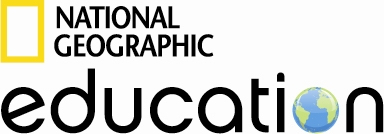Why Morocco?
Morocco is such an appealing travel destination: the perfect balance between the exotic and the familiar. Due to its cultural, ethnic, and geographical richness along with its good safety record, infrastructure and openness towards the West, it is one of the most popular and rewarding countries to visit. The ancient Arabs knew Morocco as Al-Maghreb al-Aqsa, the ‘Farthest Land of the Setting Sun’. From Ceuta, the Spanish coast is only a one-hour ferry ride away and Morocco has long been the gateway for Europeans into Africa. The country has a wealth of experiences to offer, including a diverse cultural history and a rich architectural tradition, which has left a colorful tapestry of medieval cities, Roman ruins, Berber kasbahs, and beautiful Islamic monuments. Morocco contains by far the most varied geological array in North Africa and some of the most beautiful countryside on the continent.
Program Elements
Morocco Exchange organizes tailored programs of between 4 and 21 days in length. These intercultural immersion programs or academic field trips provide students with opportunities to:
- experience Islamic art, thought, and daily life, through visits, lectures and home-stays
- discover Moroccan culture and history through academic discussions and presentations with professors from Casablanca, Fez, Ifrane, Marrakech, or Rabat
- get first-hand experience of international aid projects; witnessing their impact on local communities
- gain inspiration for future career and volunteer choices. Vibrant examples are provided by our program leaders through their years of service as former Peace Corps volunteers
View the short video below which give you a glimpse of some of our itinerary components.
Prices
Please get in touch for prices for our custom tailored programs. (Note: Our standard seven day intercultural program costs Euro 780 per participant. Our standard 21 day academic program costs Euro 1,950 per participant.)
Safety
Morocco Exchange runs small, program-led tours using experienced Program Leaders who work closely with local partners on the ground. Since 2003, we have led hundreds of programs with thousands of students. There have been no reported incidents during this time on any of the programs we run.
The guidelines for travelling in Morocco are the same as with any international destination: travellers should consider their own personal security seriously and take measures they deem appropriate to insure their well-being. Whilst there have been some demonstrations in the past in Morocco, these have been largely peaceful. The last recorded terrorist attack was in 2003 and took place in Casablanca. U.S. Government facilities were not the target of these attacks and no Americans were killed or injured.
Taking photographs of anything that could be perceived as being of military or security interest may result in problems with authorities. As a general rule, do not photograph diplomatic missions, government buildings or other sensitive facilities and, when in doubt, ask for permission from the appropriate Moroccan authorities.
Morocco has a moderate crime rate in urban areas. Most of the petty crime occurs in the Medina/market areas and transportation centers. Some travellers have been befriended by persons of various nationalities, who have offered them food, drink, or cigarettes, which are drugged. Harassment of tourists by unemployed Moroccans posing as “guides” can be a problem. Taxis and trains in Morocco are generally crime-free.
Health
There are no vaccinations required for the areas we visit in Morocco. However, please do inquire with your doctor to make sure you are up to date with your polio and tetanus vaccines. With the exception of a few rare cases near Mauritania, Morocco is a malaria free country.
Although the water is generally treated in Morocco, it is still advisable to drink bottled water. Morocco Exchange will supply all the bottled water you will need during the trip. If you have a sensitive stomach, It is also advisable not to eat uncooked fruit and vegetables that you cannot peel.
Adequate medical care is available in Morocco’s largest cities, particularly in Rabat, Marrakech and Casablanca. Specialized care or treatment may not be available. Medical facilities are adequate for non-emergency matters, particularly in the urban areas. Most medical staff will have limited or no English skills and will need the support of one of our staff members.
Hygiene: Morocco is a country of the developing world and travellers need to be prepared that the standards of aesthetics, service and hygiene in public places cannot be compared to those in the West.


